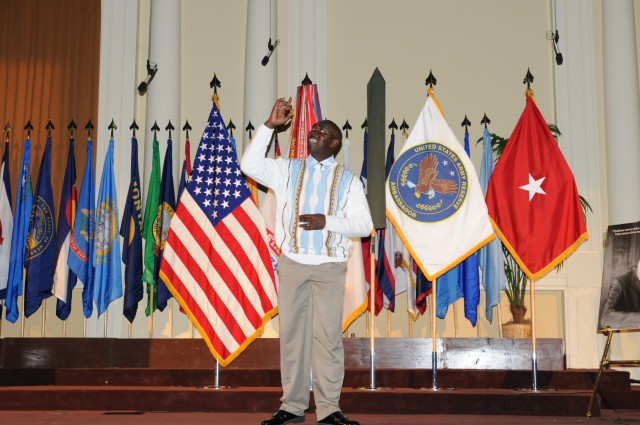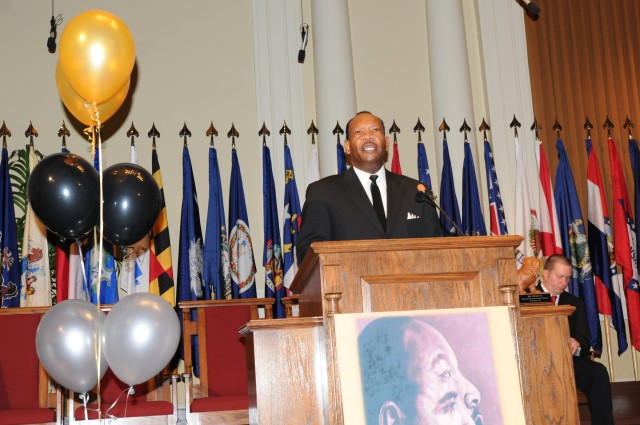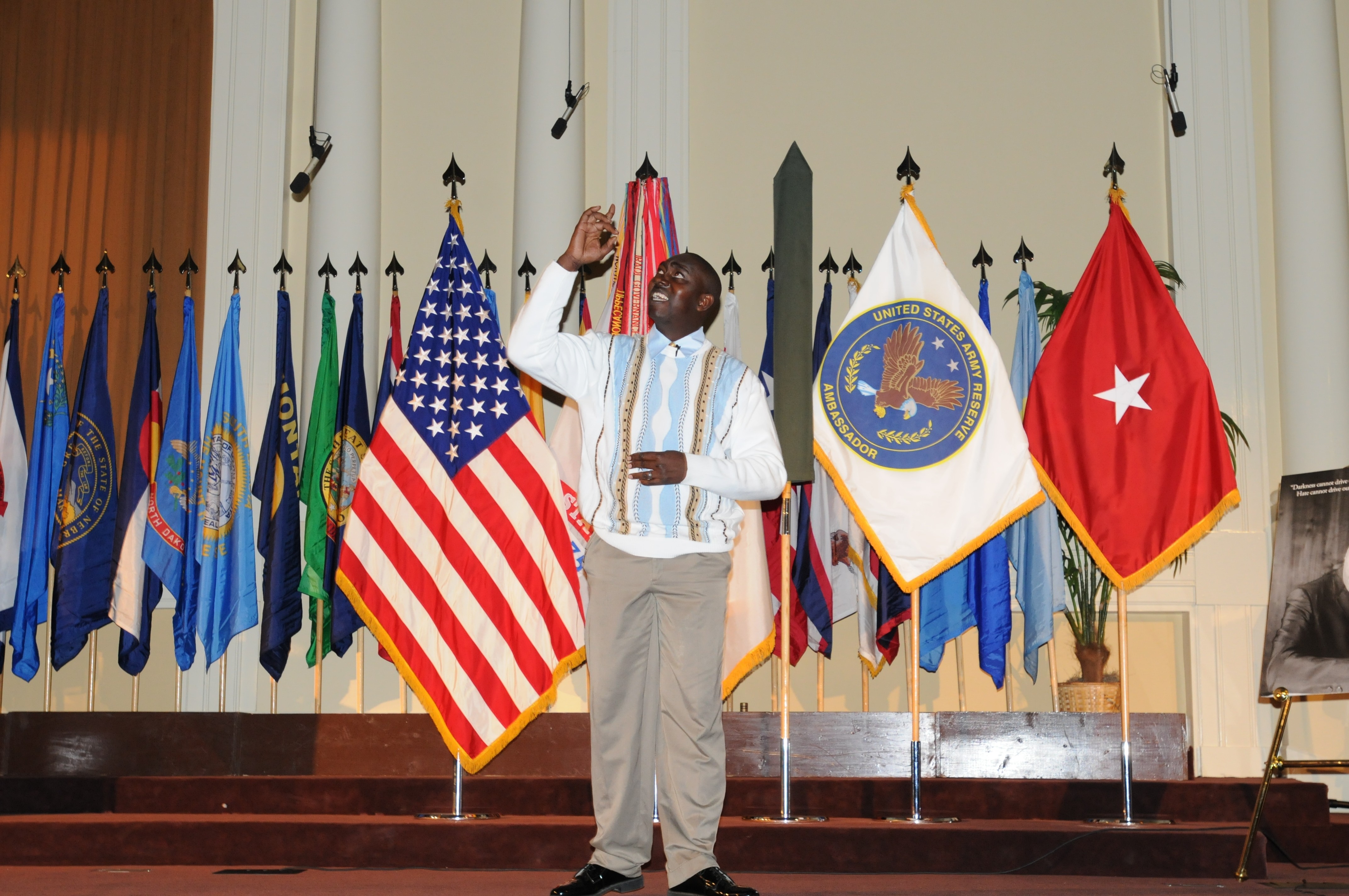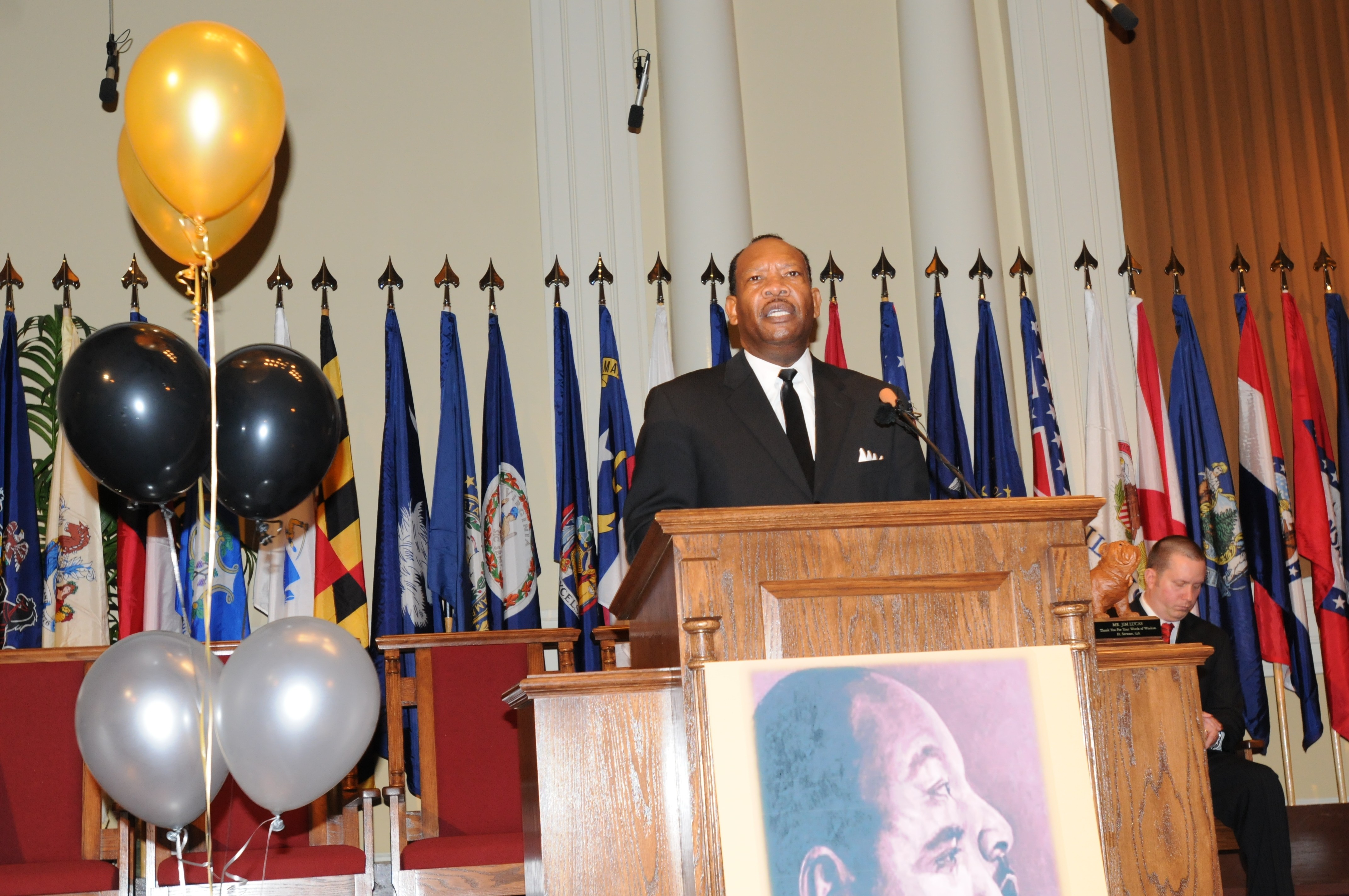FORT STEWART, Ga. -Most of the people sitting in the Main Post Chapel were too young to have witnessed Dr. Martin Luther King, Jr. give his "I Have a Dream" speech from the Washington Monument on Aug. 28, 1963. Many hadn't even been born yet when the leader was assassinated April 4, 1968.
Yet, on Jan. 29, 2010, they were given a very close representation during the 3rd Infantry Division's Dr. Martin Luther King, Jr. celebration when Jim Lucas stood before them.
The celebration, organized by the 3rd Sustainment Brigade Equal Opportunity Office, began with a cultural presentation that included a video presentation, a poem and musical selections. Yet when Lucas stood at the lectern, his resemblance to Dr. King was undeniable.
"If I can help somebody as I travel along, if I can help somebody with a word or song, if I can help somebody from doing wrong, my living shall not be in vain," began the historian, who looked and sounded almost exactly like the slain leader himself.
The words of the song, sung by the deceased gospel great Mahalia Jackson, set the tone for the speech, which gave an overview of Dr. King's part in the struggle for civil rights, starting with Rosa Parks' unintentional spurring of the Montgomery Bus Boycott.
"It's amazing what you will do when your feet get tired," he said, drawing a few chuckles from the audience. He went on to explain that in some areas, African-Americans had to sit in the back of the bus even if there were no white passengers.
"Blacks often found themselves standing next to empty seats during rush hour," Lucas noted.
After Parks was arrested, the Montgomery Improvement Association launched a bus boycott, choosing Dr. King, a 27-year-old minister who had just moved to town, as its leader. His leadership, coupled with African-Americans' willpower, helped the boycott to last 383 days, ending with the U.S. Supreme Court's Nov. 13, 1956 decision that segregation on busses was unconstitutional.
That victory helped launch Dr. King's place in history, Lucas said. He was later unanimously elected president of the Southern Christian Leadership Conference. However, Lucas noted, he was arrested more than a dozen times, most notably in Birmingham, which he said was known as the most segregated city in America. This was where Dr. King penned his famous "Letter from a Birmingham Jail," which Lucas quoted verbatim to the audience.
The highlight for many people came later in the speech when Lucas recited Dr. King's "I Have a Dream" speech, which, he noted, almost didn't take place. He explained that not only was the speech not written until the night before the event, but the sound system had been sabotaged, and it would take three days to get fixed. However, with help from the Army Corps of Engineers, the sound system was repaired.
"For the first time, a black man was aired on national television," Lucas said.
He then recited nearly the entire speech, his resemblance to Dr. King becoming even more evident. Once he finished the speech, he reminded the audience that the Civil Rights bill still hadn't been passed, so more work had to be done. That work, would not be finished by Dr. King, who, in his pursuit for civil rights, received as many as two dozen threats per day, according to Lucas. Yet, he said he believed that Dr. King knew his life would end soon, but went about his cause unafraid. It was this lack of fear that inspired Lucas to begin his speech with the Mahalia Jackson song.
"Maybe you too will try to help somebody, so your living won't be in vain," he said.




Social Sharing